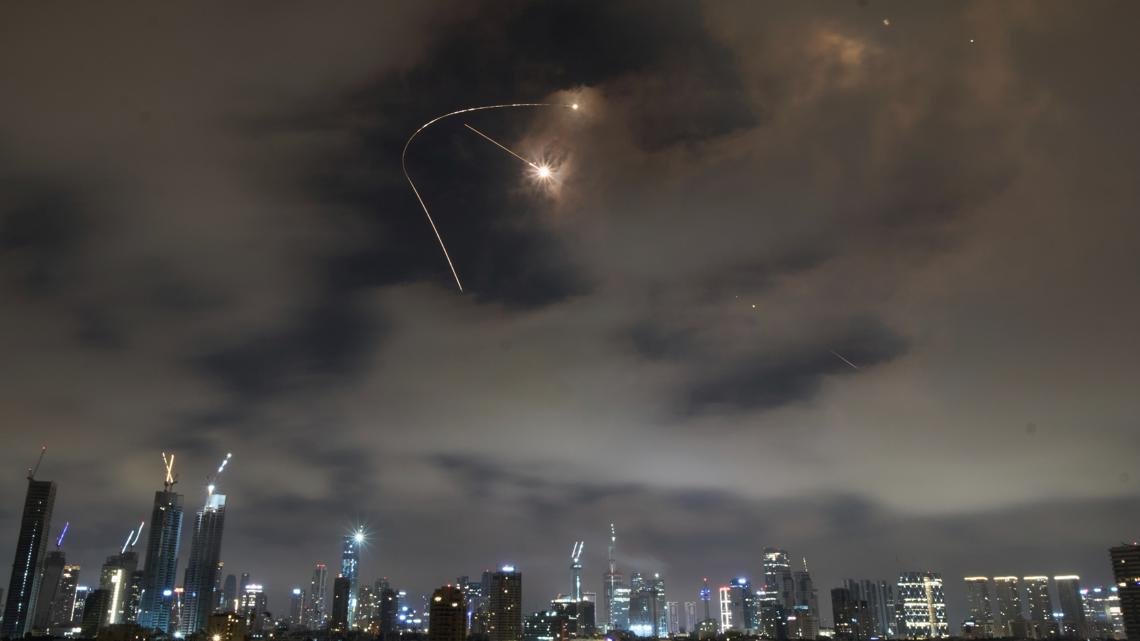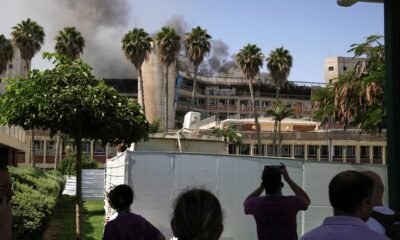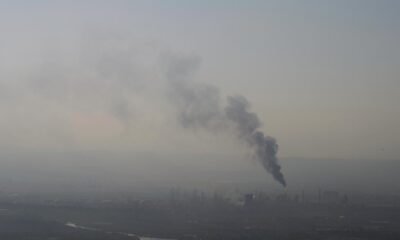cct-tracking
Israel Strikes Key Iranian Nuclear Site, Eliminate 3 Commanders in Escalating Tensions

TEL AVIV, Israel — Israel’s military launched targeted strikes on Iranian military assets, killing three senior commanders as tensions escalate into the second week of conflict. The incidents primarily focused on a nuclear research facility in Isfahan, where Israeli airstrikes reportedly took place in two waves early Saturday.
Israeli officials confirmed that the attacks aimed at two centrifuge production sites succeeded in damaging vital military infrastructure. Despite the assertiveness of Israel’s military campaign, local Iranian authorities reported no casualties.
In response, Iran countered with a wave of drones and missile attacks. However, Israeli defense systems intercepted many of these, resulting in limited impact. An Israeli military source indicated that the campaign had effectively neutralized over 50% of Iran’s launchers, thus hindering its ability to strike Israel.
Though the attacks from Iran were labeled a “small barrage,” tensions remain high. Magen David Adom rescue services reported an Iranian drone strike on a building in northern Israel, which led to no casualties but underscored the ongoing hostilities.
The violence coincides with stalled diplomatic efforts in Geneva, where discussions failed to yield a breakthrough. Iranian Foreign Minister Abbas Araghchi indicated a willingness to resume dialogue but stated that negotiations would not occur while Israel continued its military actions.
U.S. military involvement remains a topic of concern. Araghchi warned that such escalation could prove detrimental, expressing the need for accountability regarding ongoing aggression. The latest conflict began on June 13, with Israeli airstrikes targeting Iranian nuclear and military sites, leading to significant casualties on both sides.
Israeli Prime Minister Benjamin Netanyahu emphasized his commitment to maintaining military operations until the threat posed by Iran’s nuclear capabilities is eradicated. He acknowledged that achieving this goal may require assistance from the United States, particularly concerning Iran’s fortified facilities.
On the operational front, Israel continued its targeted operations, reportedly eliminating key military leaders involved in planning attacks against Israel. The recent killing of Saeed Izadi, a commander in Iran’s Quds Force, was part of these ongoing efforts.
International observers on both sides of the conflict are voicing concern over the possible fallout. The head of the U.N. nuclear watchdog cautioned that any strike on Iran’s nuclear reactors could trigger serious environmental consequences, emphasizing the heightened risks associated with the conflict.
The situation continues to evolve, with both nations on a trajectory of mutual escalation. Iran claims to pursue nuclear energy for peaceful purposes, but fears persist regarding its intentions and capabilities.
In summary, the conflict between Israel and Iran is weaving a complex web of military actions, retaliatory strikes, and fragile diplomatic interactions. While leaders express their positions publicly, the situation underscores the precarious balance between military aggression and the quest for a diplomatic resolution.


















